« June 07, 2009 | Main | June 09, 2009 »
June 08, 2009
WAC Special: Raising the Bar--A Second Season Preview
Below Rob Bodine, WAC?'s newest co-writer, a Washington, D.C.-based IP lawyer, reviews this season's opening episodes of Raising The Bar. That's tonight, Monday, June 8, on TNT at 10 PM Eastern Time/9 PM Central Time:
ca⋅thar⋅sis /kəˈθɑrsɪs/ [kuh-thahr-sis]
–noun, plural -ses /-siz/ [-seez]1. the purging of the emotions or relieving of emotional tensions, esp. through certain kinds of art, as tragedy or music.
Random House Dictionary, 2009
Steven Bochco’s latest contribution to television, Raising the Bar, starts its second season tonight. The series centers on the interplay between the offices of the public defender and district attorney, the judges in front of whom they argue, and the clients whose lives are at stake.
The show is intensely character-driven. As in the shows involving different professions Bocho first made popular nearly thirty years ago, we get glimpses into work and personal lives--and how they clash.
The lawyer storylines. They do seem familiar, at times drawing from “hot-button” political topics, but adding a level of complexity not always seen. The cases presented show that sometimes there’s more to an issue than initially meets the eye. And that those with shared shared interests can be at odds.
The attorneys face the same tensions felt by the viewer in the real world, with only the context-- the legal system--being the difference. That is their world. By day, they’re bitter adversaries, deeply frustrated with each other’s legal positions; by night, they’re friends, sharing drinks and stories of their day.
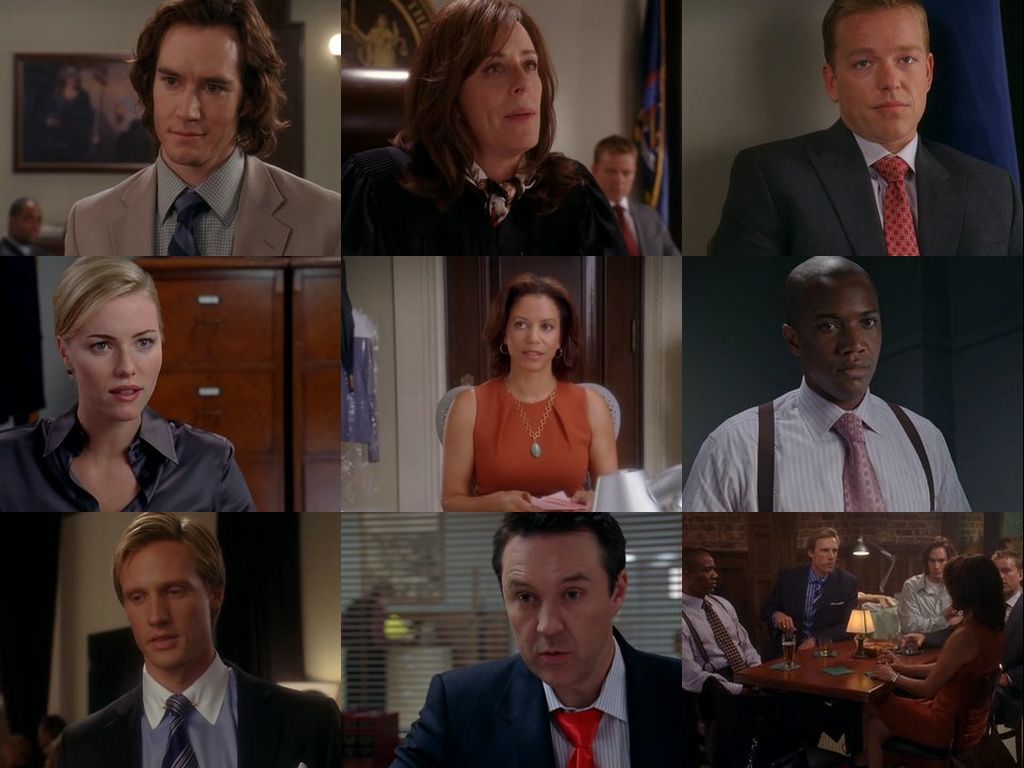
On the job, they’re ethically bound to represent their clients to the best of their ability, while also being ethically bound to allow the client to dictate the direction of that representation, either through political pressure (prosecution) or through prioritizing other interests above their own legal interests (defense), all the while making sure to check their egos at the door. Divorcing one’s feelings from the job is difficult--especially when your client is compellingly sympathetic, or even noble, in their cause. But it’s necessary, and Raising The Bar drives that one home convincingly.
Should idealistic Jerry Kellerman (played by Mark-Paul Gosselaar) change who he is for the sake of the job by sacrificing a trademark part of his personality? Can right-and-wrong prosecutor Marcus McGrath (played by J. August Richards) accept the conflict between the public’s interests with his superiors’ political interests?
Off the job, they’re ordinary people, facing ordinary problems. Should Kellerman and fellow public defender Bobbi Gilardi (Natalia Cigliuti) pursue their relationship even if it's potential ammunition against her in a bitter divorce? Should McGrath pursue a relationship with a woman who represents the political system with which he often finds himself in conflict?
For the lawyers watching the show, there’s something special in it for us. John Michael Higgins solidly delivers as your less than favorite judge. This isn't to say that there isn't dramatic license taken, but when you're looking unwind, do you really want to watch a show that's 100% accurate in its depiction of the law?
At a day's end, when egos have been bruised, frustrations are high, and hope dies a little, things can and do work out. You are uplifted, restored. Even Justice is served. A moral order in the universe, maybe? Mind you, when I was watching the advance tape this weekend, it hit me that RTB doesn't accomplish all this by insulting you and yours. Like you just died and went to Hallmark: "triumph of the human spirit", "people coming together and caring about one another...", learning to trust one another, working with one another despite their differences.
This show is very real about the ambiguities of real life--and real work. Sometimes, there’s no one right answer.
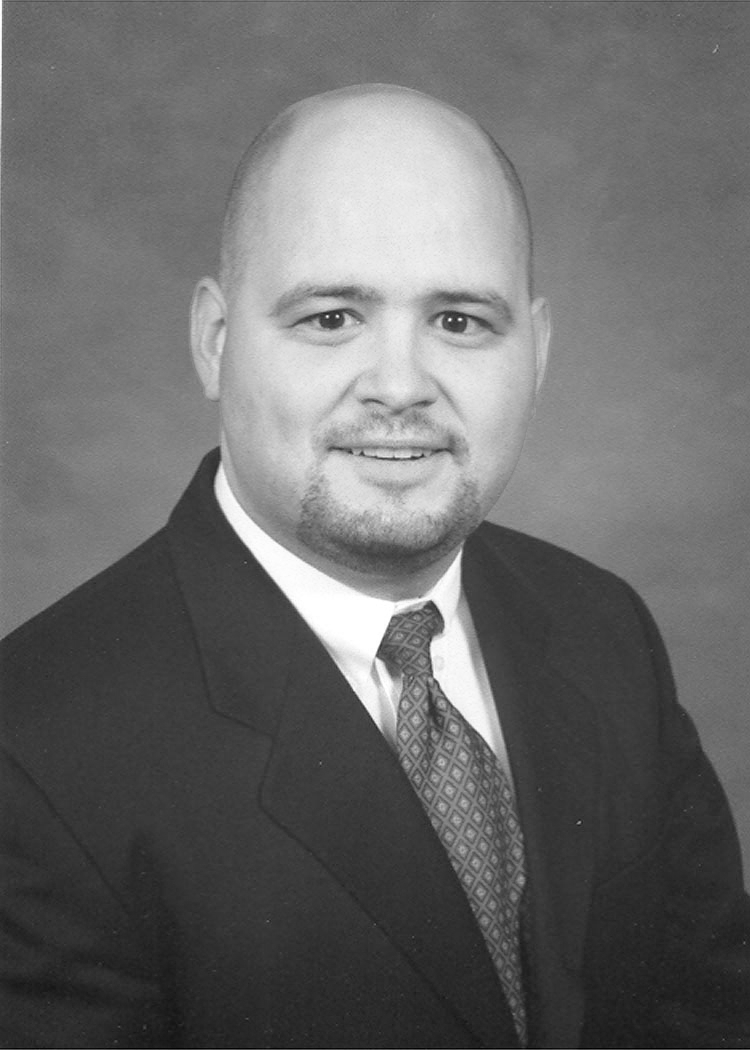
Rob Bodine
Posted by Rob Bodine at 11:59 PM | Comments (0)
The Internet's Spine Problem: "Big Mouths. No Names".
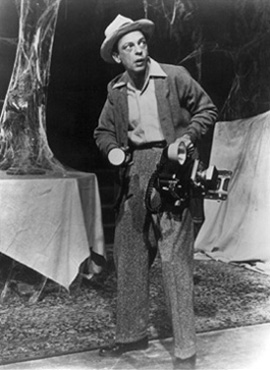
Mr. Chicken: He comments, and blogs, but doesn't use his real name. Some day he'll become a person, who'll put his real name behind his public thoughts. In the meantime, ignore him.
The marketplace of ideas is not well served by "no-name" writers and thinkers. And if you think about it, anonymous commenters have chosen to be in a lower caste. In a society where by law, or cultural folkways, we are not permitted to discriminate, here's your chance to break the rules for solid reasons. And do some good, too.
Exclude them. Insist on real names--or just block the comment. Exceptions to the requirement of identifying one's self in the blogosphere should be extremely rare.
The Problem: Nameless Bloggers and Commenters. "Hi, I'm Nothing. And No One. Here's what I really think? Very valuable. My opinions are very strong. Want to hear them?" No, sir, I really don't. Who with any character or intelligence would? So why do so many frequent and regular commenters--to this blog and others, in both North America and Europe, legal and non-legal--lack the courage and self-respect to use their real names?
And why do so many bloggers themselves put up with it? For example, see the very fine and enduring Above the Law. There, and at this blog (far less traffic, far fewer comments), the best comments seem to be by actual people who give their actual names. But there are too few of them.
Comments from identified humans are easier to swallow because they have more credibility. A reputation--of a real person, who has taken a risk--backs the comment.
1. At many blogs, the comments are routinely anonymous. Oddly, to me, they appear to be, and often claim to be, from males. "Men". Some no-name comments are wonderful. Some are funny; a few ABL comments are classics, and can be wickedly witty and biting. Some are dumb. Or absurd (that's okay). Some are cries for help. Some are based on horribly unfair innuendo and/or defamatory. Some are vicious.
2. I can be pretty mean and opinionated, too. Even vicious. Sometimes I get paid for that. But I'll sign my name to my ideas--and thereby to all my shortcomings.
3. People who have no spine: an industrial accident, maybe? A war injury? Tell me about that. WAC? is all ears, and we have a big heart.
4. So you don't give your real name. You're dressing it up--the condition of having no-sand--as a "privacy" protection? That it?
5. Are no-name commenters just Slaves and Peasants--leading lives of quiet desperation? Are they constantly in fear about losing their jobs? My humble opinion: they hate themselves, or have very little confidence in what they are thinking and saying. But under no circumstances are they worthy of your time--or even your thoughts.
6. I am fascinated by this. How did this all start? Our New Age digital spine deficiency. How can we end it? You know, become real people again. People with courage and character. All those old verities. How brave do you have to be in the blogosphere? Just a bit? Brave enough to use your own name?
7. Can we fine tune the Internet, and blogosphere? The Internet is still very new--and still very much an American phenom. Yanks built it, and will continue to control it, likely for decades. But play time is over. Can we now lead a little? We can make it more valuable, and more useful.
And more responsible and credible. We can make the Internet's dialogue more attractive to the entire world--respected by everyone as a fine and promising experiment in the trade, flow and use of great ideas.
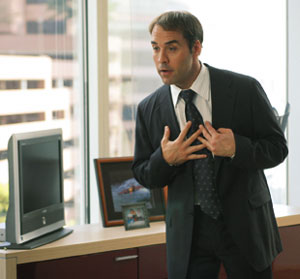
Ari Gold (likely based on one of the Emanuel brothers and played by Jeremey Piven): You might not like him--he's funny but abusive, dismissive and rude, right? But WAC? bets that the real Ari has the sand to use his own name on the Net. (HBO)
One Possible Solution? Well, WAC? is seriously considering a policy of "No Real Name, No Real Publish, Jack". A no-wankers policy. Set up safe and respected no-wank zones. No-wimp zones. "Spine-required" districts. How about just "no-wuss zones"? A little extreme? No, not really. The nameless-pundit problem is a serious and extreme impediment to the reliability, quality and future reputation of the Internet. In short, those folks are making us all look silly. They dumb down, and degrade, a fine project. And we're buying into it by letting them play along with us.
We can't, of course, legislate courage and accountability in the blogosphere, in legal or other communities. But self-respecting and serious bloggers everywhere--all around our New World in many different countries--can insist on maintaining their own sites as no-wuss zones. The marketplace of ideas is very rarely--if ever---well served by "no-name" writers and thinkers. They have nothing to lose by "lobbing in there" anything they feel like--and they are wasting your time, folks.
NWZs might (a) improve dialogues globally (some non-Anglo cultures don't "get" anonymity, or drive-by viciousness or pointless rudeness by fire-breathing no-names) (b) force better content in comments by making people think before they pushed "publish" or "send". They would make the blogosphere (c) more responsible, and a lot smarter all way around. In some cases, NWZs might even help some commenters (d) grow as humans, or grow up.
NWZs would also help (e) reduce the amount of "Ephemera". Insubstantial one-liners in the hands of people who aren't that witty or biting to begin with, or who just don't use words well, is often pathetic. Ephemera. It's something that practicing lawyers, and their business clients, not only strive to avoid, but justifiably look down on, and often even detest as a waste of precious time of life and work.
A Policy of Attraction. "NWZ" policies at enough blogs might have other good and productive effects. Lots of NWZs could (f) attract writers and thinkers not currently very active in the blogosphere to dive in and participate in it. Many talented and forthright people I talk to who are intrigued--and often very surprised--by the fact our firm has a blog, and I would ever write for such a "techie" device. They still believe the blogosphere is for: younger people, insular techies, digital circus barkers, dilettante journalists, pseudo-philosophers and, frankly, "lightweights" of the first order. Sorry but that is a fact; lots of people don't think blogging and other forms of social networking is noble or "cool". They are often (not always) laughing at you. I'd love it if the blogosphere were more attractive to them--they might participate
And a Tool of Retention. Lastly, but importantly, enough NWZs also (g) might encourage talented and well-meaning commenters and bloggers who "have had enough", and who are disillusioned, to stay in the blogosphere.
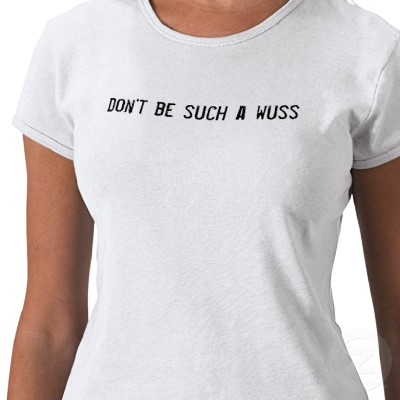
WAC?'s no-wuss zone will start--if it starts at all--very soon. The proposed rule we promulgate today: "No name. No comment. Screw you." Possible exception: (1) you have an established Internet "personality"; (2) we have met you in person; and (3) we know your real name, and mailing and office address (and know where to serve the summons or subpoena).* I realize that this test would close the doors to many commenters--some with interesting things to say--who regularly weigh in with WAC? But I see no reason to make exceptions.
Comments to this blog are generally fine--and often uplifting and educational. Not all of them. But we have still published 100% of them since August 1, 2005 when we started, even when my staff didn't want some of them published. We know that a few (maybe three) were from people who were fired from, or quit, my law firm, and who were very offended by simple work. But most were from the NYC and LA area--two of my favorite places. They have been from angry "hiders". Okay, they are cowards. A lot of the people who read this blog are, apparently, cowards. Wow. We said it. Also extreme. And also true.
One other new practice I'd like to see, and will adopt immediately myself--and for the other writers of this blog. It's a NW "personal" policy re: commenting on other people blogs which all of us could adopt. If someone enters into a thread on a name-less basis, do not respond to them. Ignore them. Unless circumstances for anonymity are both compelling (there will be a few isolated instances writers direly need a "protection") and readily understandable, you should feel free to treat the speaker--him, her, them or it--as simply "not there", and never worth engaging.
Comment Period to our WAC? proposed NWZ Rule: June 6 through June 12, 2009. But don't even think about it unless you sign your real name. Identify yourself. We'd all love to know who you really are.
Important Note: If your reason for your "no-name" comments is that you "don't want your employer to know", that won't cut it in WAC?'s world. A suggestion: either work harder and get promoted, or get a better job, one where you can be a person. Thanks to the incomparable Redford, for his inadvertent inspiration: "Big Mouths. No Names." And to the really tiny fearful people--mainly males, I'd wager--born without spines. This one's for you.
*Only two proper exceptions come to mind thus far: The talented and vile but funny GeekLawyer and the erudite Charon QC. WAC? can expose, embarrass and bring either to his/her/its patrician Southern England knees in a heartbeat, at any time. We know where they live. And, quite seriously, they are both first-rate people who care deeply about ideas, lawyering, the quality of the conversation in the blogosphere, and other humans. I've had Diet cokes with both of them, and may see them both again surprisingly soon--if it doesn't rain too heavily and Charon actually shows up at my new fave secret Mayfair hotel this time, and GL, of course, has finished his thrice-yearly 90-day rehab, or his monthly Lincoln Inn remedial morals-and-manners course, when I am next in London.
(Photo first above: from "The Ghost and Mr. Chicken", Universal Pictures, 1966)
Posted by JD Hull at 12:50 AM | Comments (6)